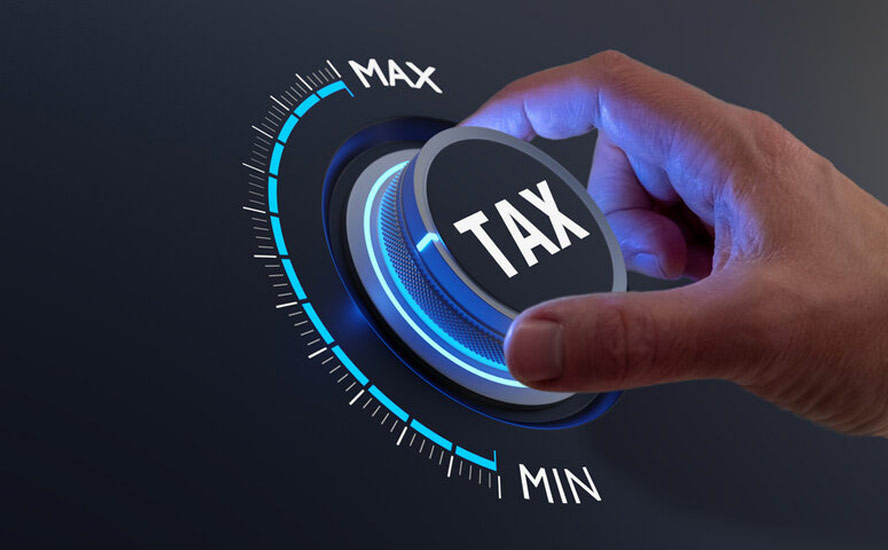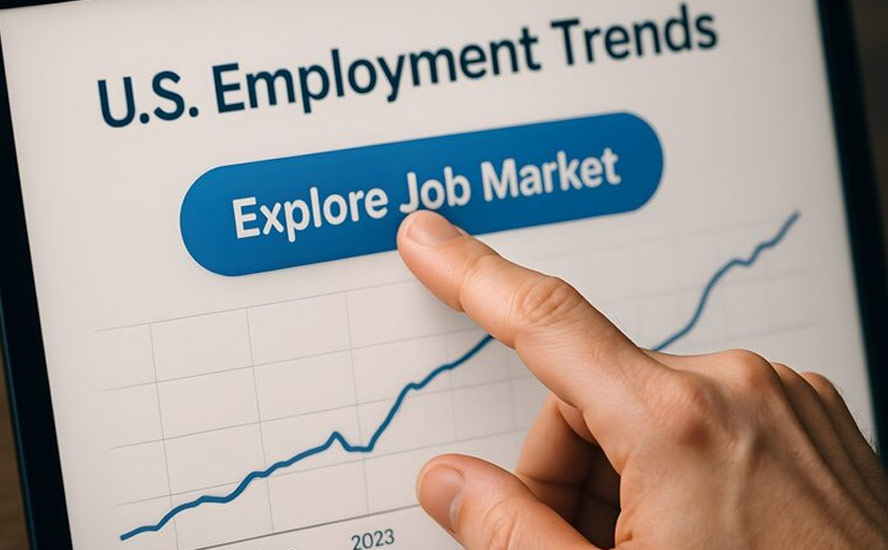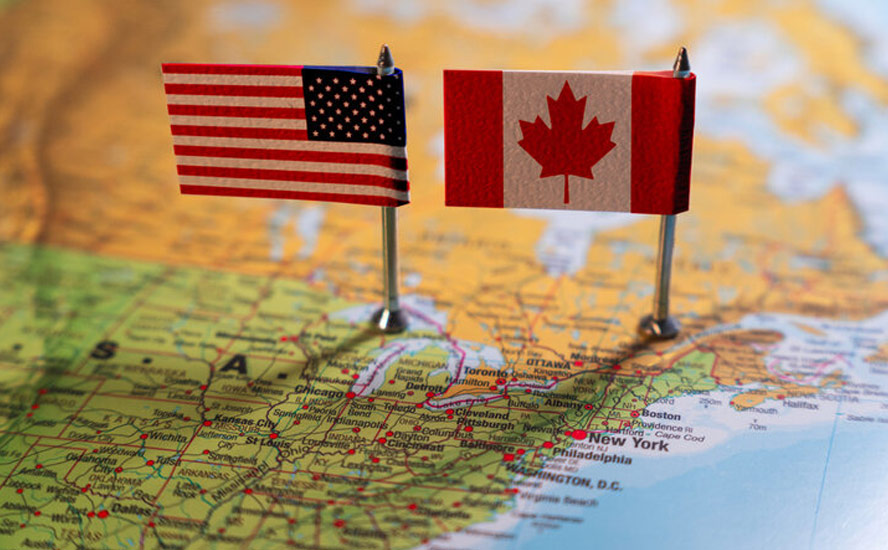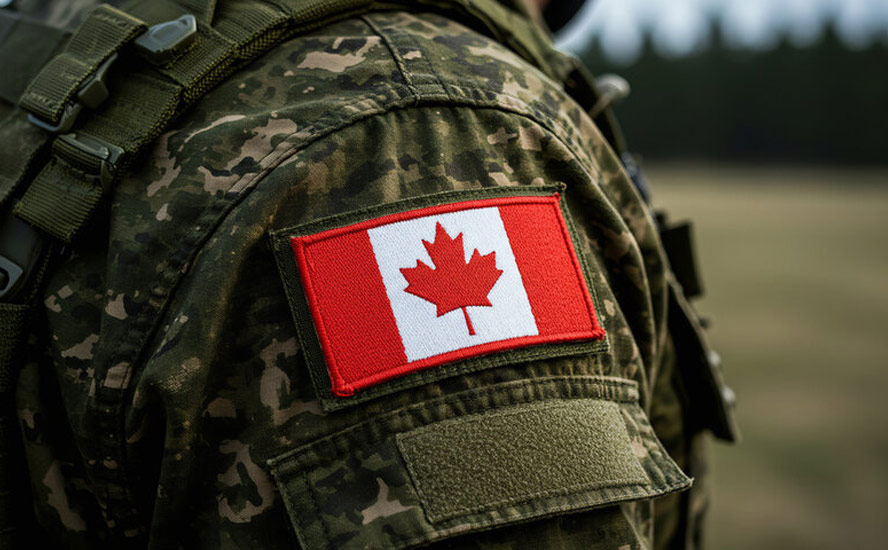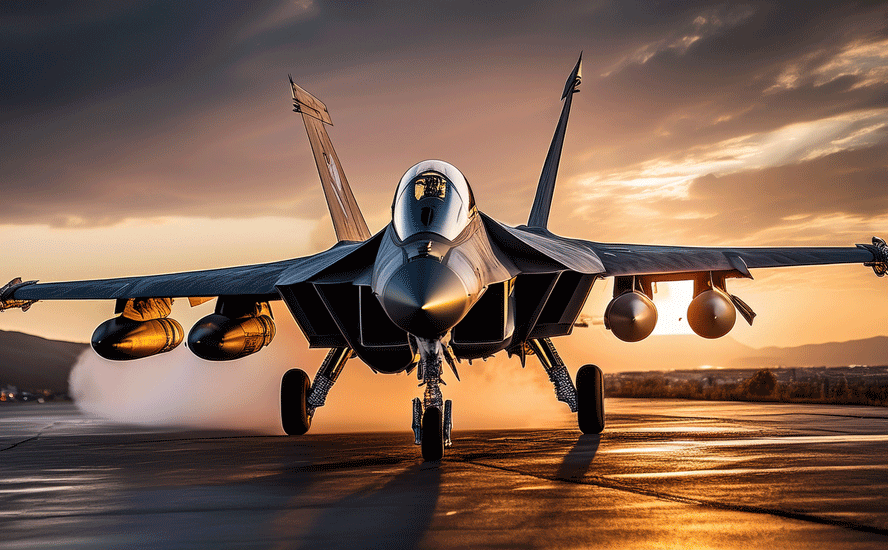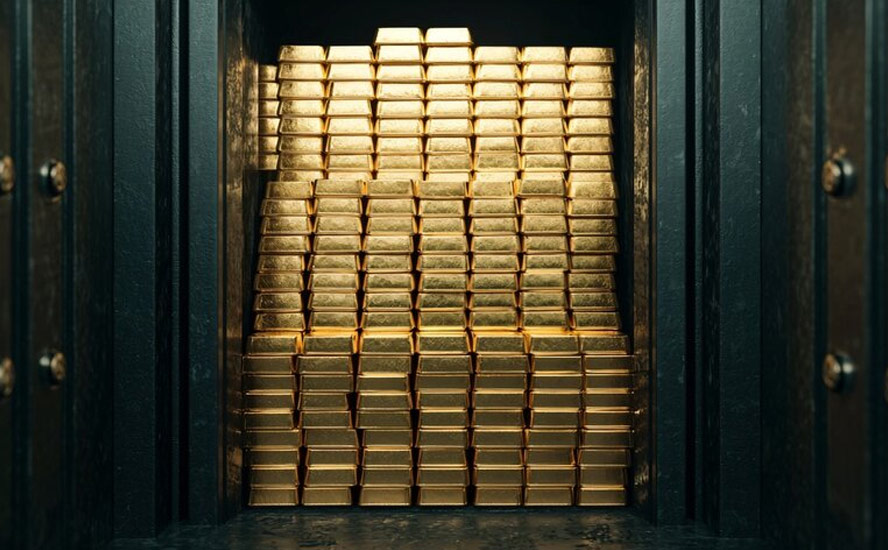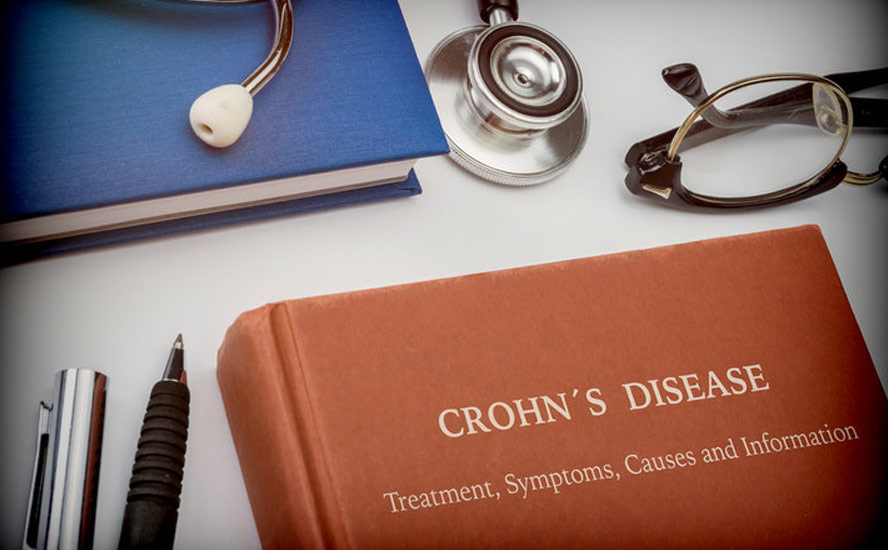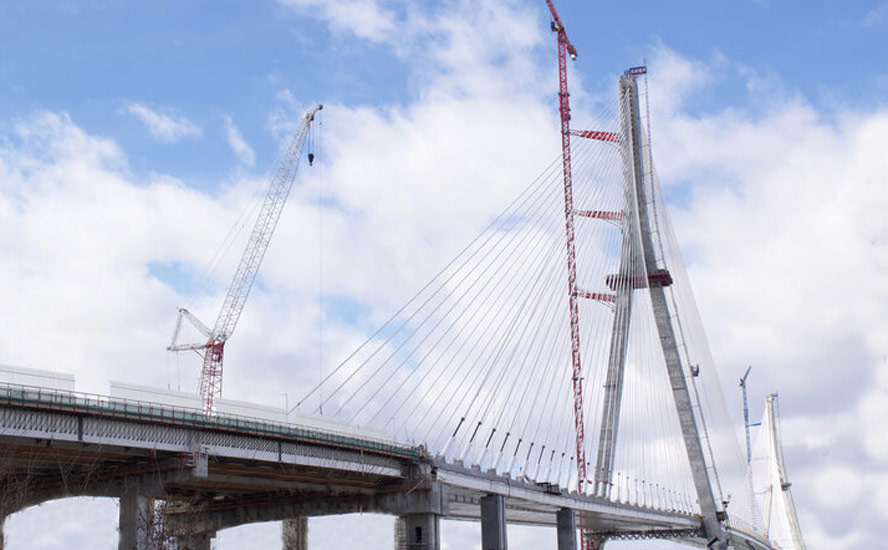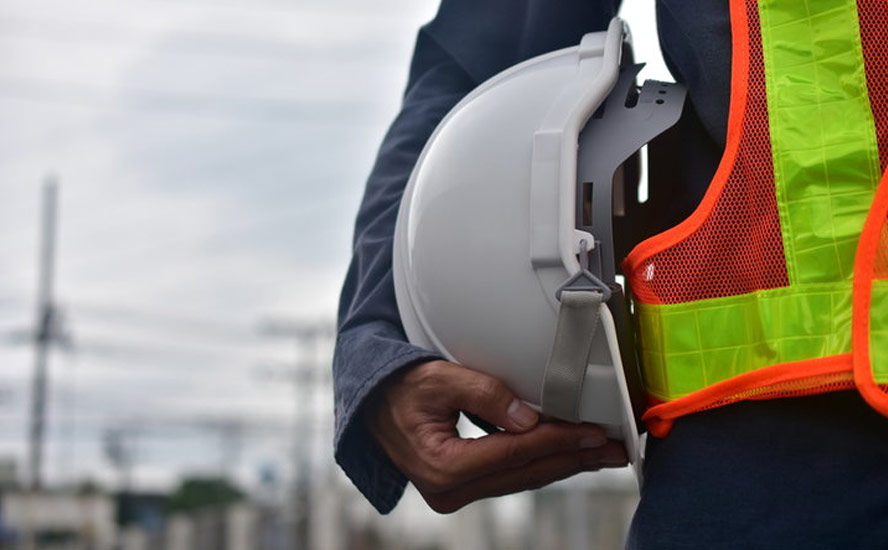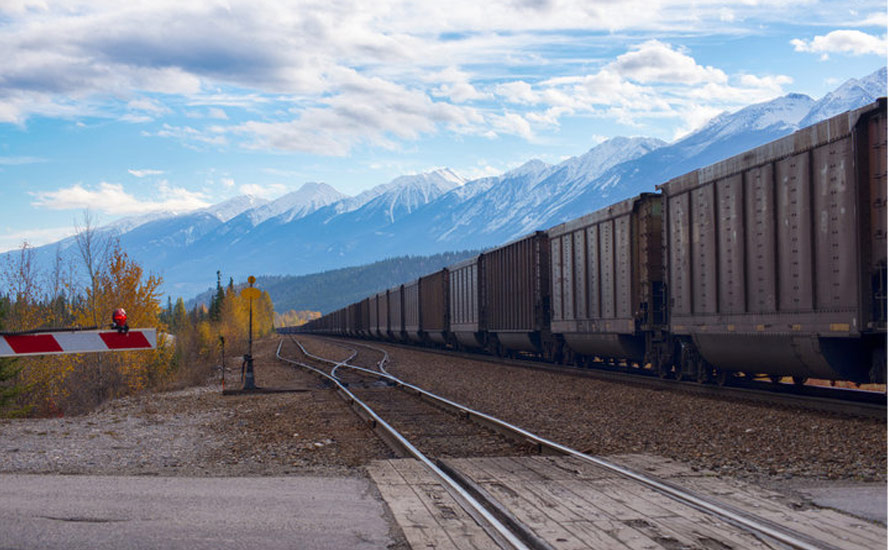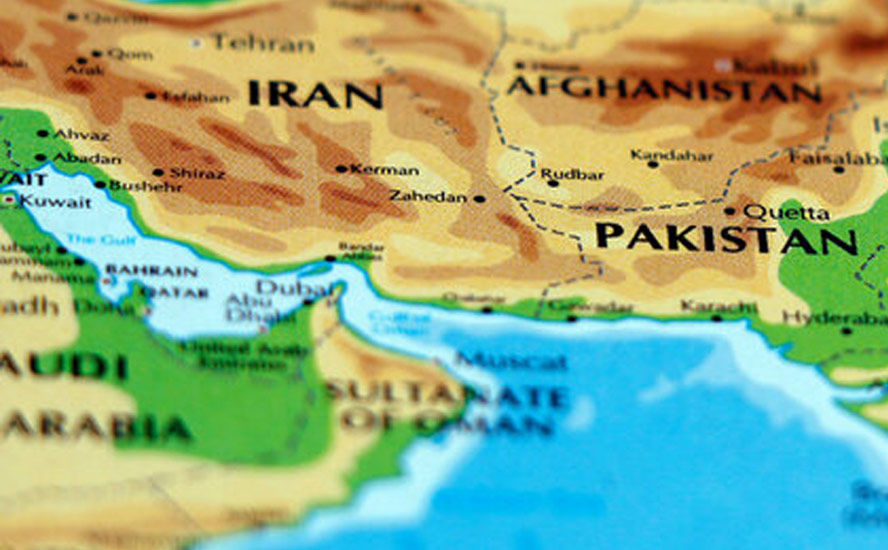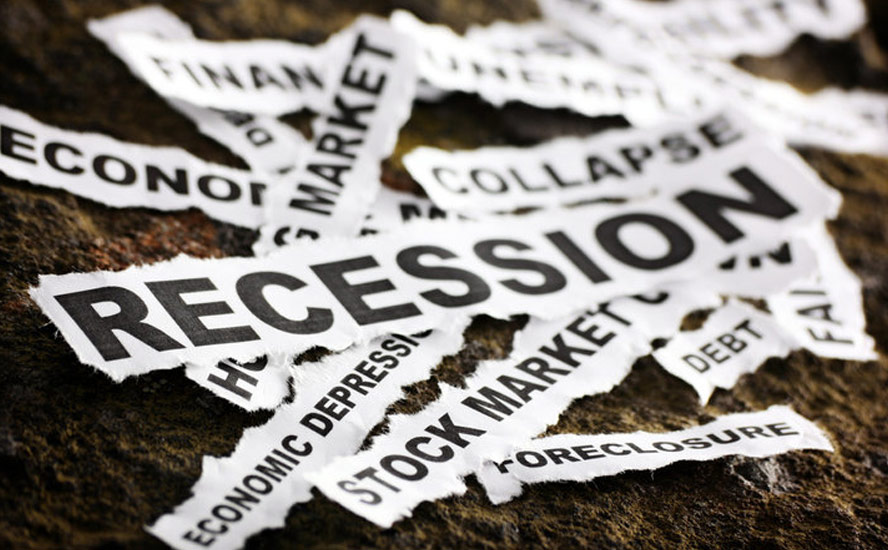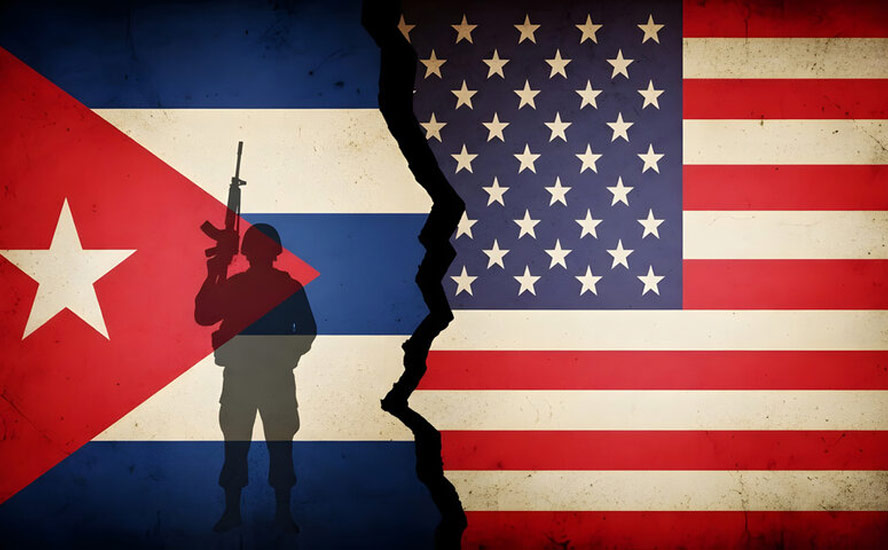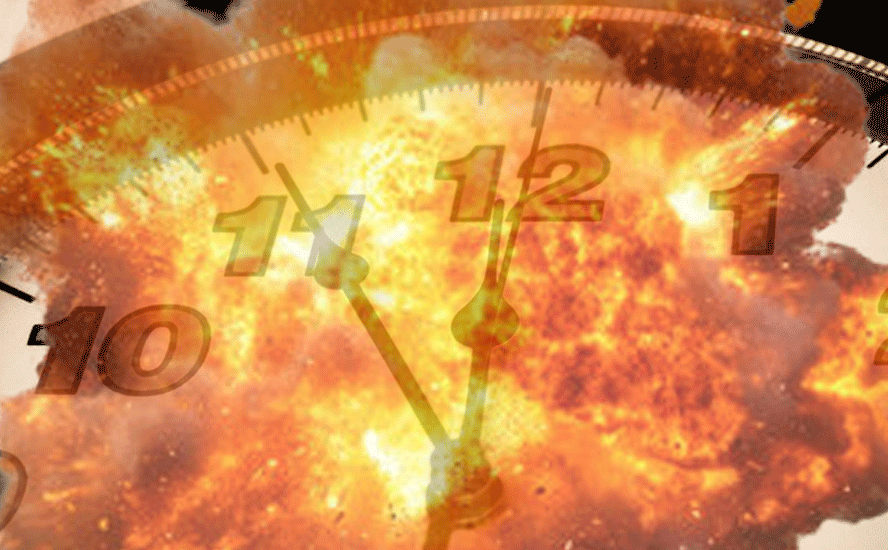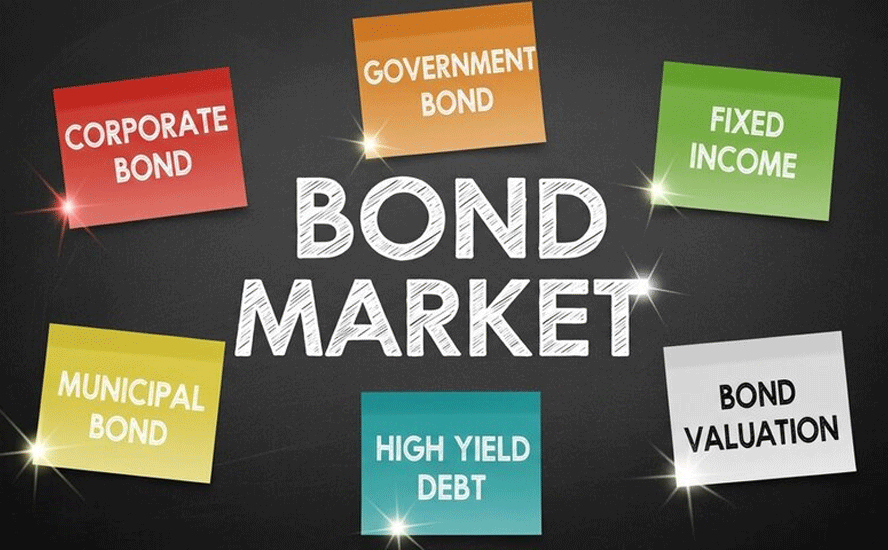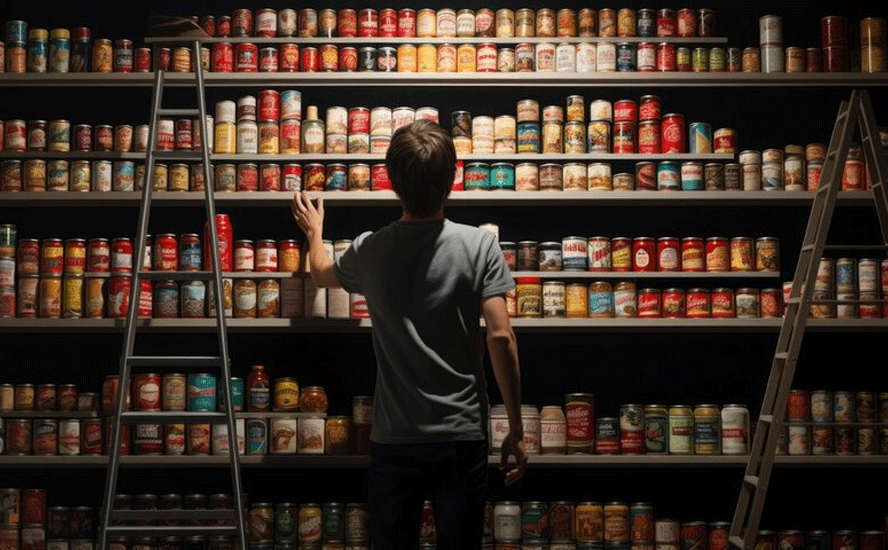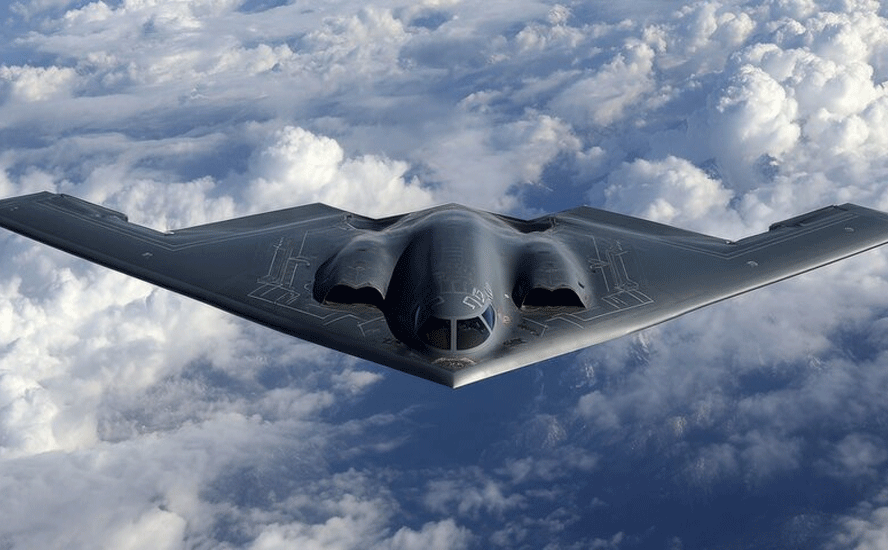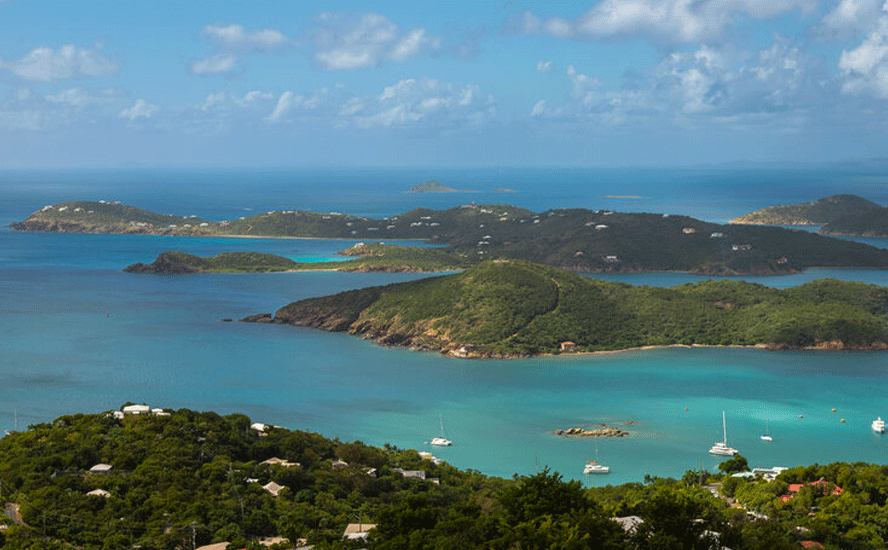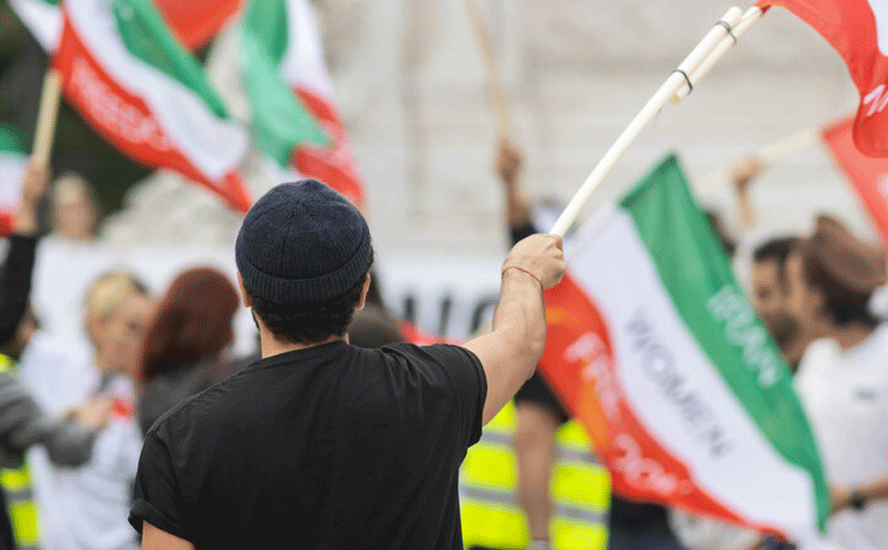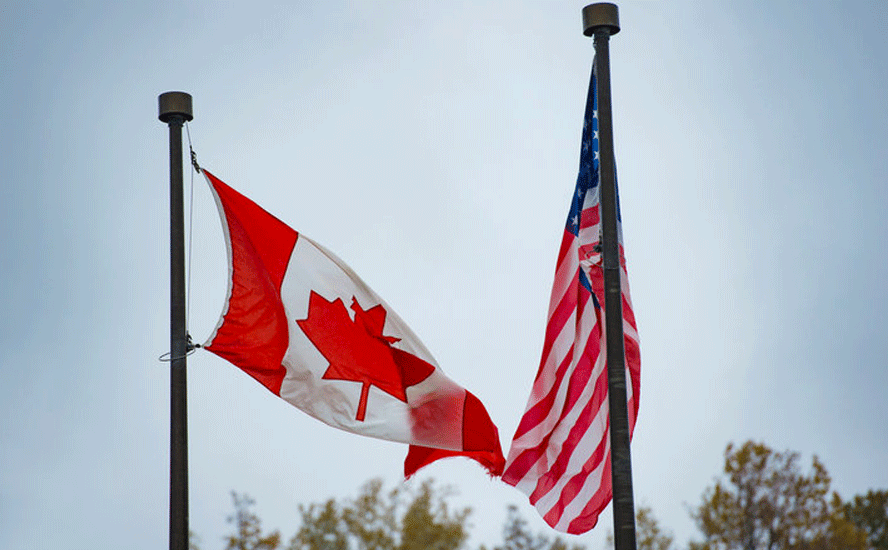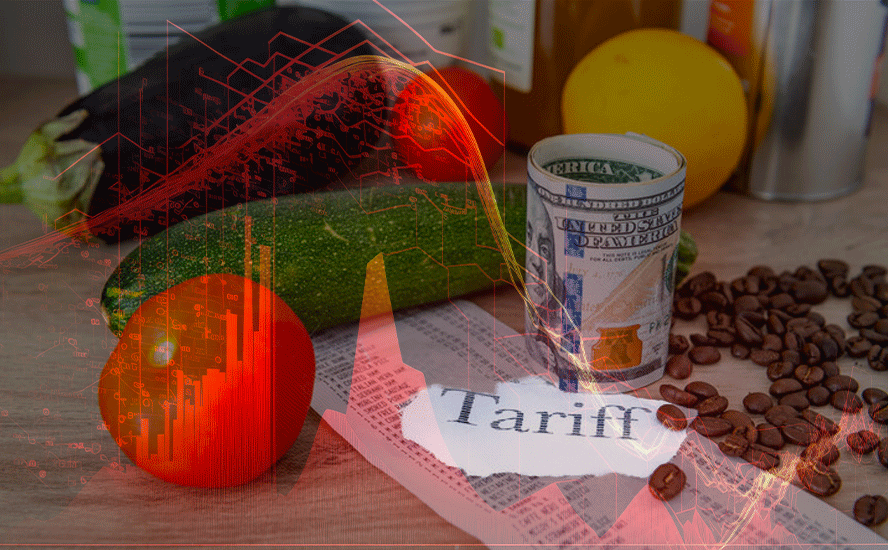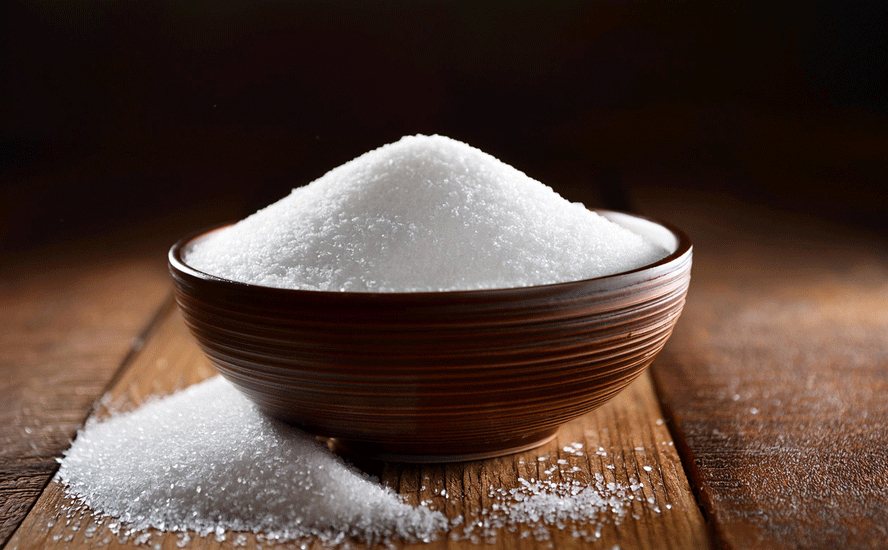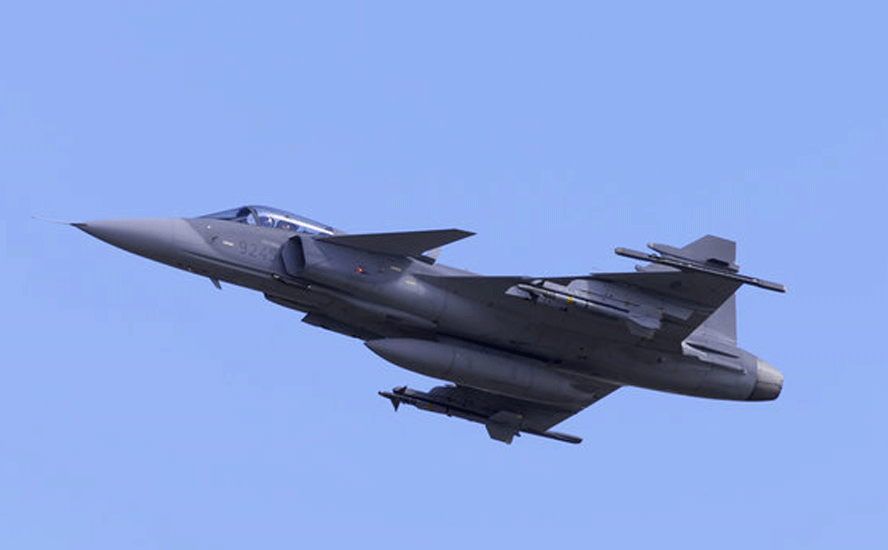Covid-19: Who, what, when, where and why

2020.04.10
If there is one thing we know about the coronavirus, it’s that getting a jump on it helps to limit the number of infections. Clearly the best time to stop this, and all outbreaks, is in its early stages.
Both China and the United States have been accused of suppressing information and delaying acting on knowledge that could have significantly limited the spread of covid-19.
Some may argue this is no time for armchair quarterbacking, as the virus continues to ravage the United States, Canada and several nations in Western Europe including the UK, France, Germany, Italy and Spain.

I would counter there is no time like the present, especially now that so many people are sitting at home in front of their keyboards, with ample opportunity to read about covid-19 conspiracy theories, check the daily case numbers, worry about their personal safety, fret about money, and wonder when everything will go back to “normal”, whatever the new normal is.
This article takes a deep dive into the known science of the “novel coronavirus/ covid-19”. We’re also dissecting some of the conspiracy theories making the rounds of social media, investigating how complicit was China in hiding knowledge it could have shared with the rest of the world, much earlier than it did, and asking, how well did the Trump administration do in responding to the pandemic?
Covid-19 conspiracies
Cataclysmic events with global ramifications are usually ripe for conspiracy theories. The assassination of John F. Kennedy, the first lunar landing, 9/11, the War in Iraq, the 2014 oil price collapse, the Russian spy poisoning, have all fired the imaginations of conspiracy theorists motivated to assign blame to the actions of a small, powerful cabal of individuals, such as the CIA, the Chinese Communist Party, the Kremlin, the oil companies, etc.
The coronavirus is no different. Among the most widely circulated beliefs is that covid-19 is a chemical warfare agent that was created in a laboratory, and either escaped or was purposefully leaked, by some nefarious party(ies) intent on massively disrupting its host population.

Of this theory there are two varieties: the first says the virus originated in a Canadian microbiology lab and was smuggled out to a laboratory in Wuhan, the epicenter of the outbreak. Chinese officials have also proposed the coronavirus was carried to Wuhan by 300 American military athletes, who were competing in the Military World Games. In this version, several athletes became infected and passed it onto the Chinese population.
While the US athletes theory cannot be dis-proven, logic dictates that if it were true, the plan backfired spectacularly, given the current mess the United States find itself in with close to half a million coronavirus cases, more than five times China’s cases, if their data can be trusted.
The Public Health Agency of Canada denies any connection between the National Microbiology Lab in Winnipeg, two scientists escorted out of the building last summer, and the coronavirus outbreak in China.
A simpler version of the lab theory holds that covid-19 leaked from a laboratory in Wuhan where Chinese scientists were researching viruses.
This hypothesis was initially dismissed by the UK government but is “no longer being discounted” according to a Mail on Sunday newspaper report.
The idea of an intended or unintended leak is strengthened by the fact that there are two scientific laboratories within 10 miles of the animal market where the outbreak is widely believed to have started late last year.
Officials in the government of Prime Minister Boris Johnson, who is currently hospitalized with the coronavirus, believe the animal market theory is still the likely explanation but they are not ruling out the possibility of a lab accident, where the virus, even if not created in a lab, was being studied and somehow escaped.
Unsurprising, given the historical tensions between the two nations, Iran’s Supreme Leader, Ayatollah Ali Khameini, raised the idea that SARS-CoV-2, the virus that spawned covid-19, was created by the US government. Khameini even refused a US offer to help the tens of thousands of Persians infected by coronavirus, believing it was manufactured to target them.
Iranian mullahs have also packaged the pandemic as a Zionist conspiracy, despite the fact that Israel has close to 10,000 cases.
The idea of rogue scientists running around with vials of coronavirus makes for entertaining reading, but scientific research debunks the “made in a lab” theory, as well as another outlandish claim that coronavirus is a fake disease, designed to cover up the damaging health effects of 5G.
The latter apparently is being peddled by conspiracy theorists and celebrities on social media. According to Business Insider, this alternative reality holds that the rollout of faster 5G internet is either causing or accelerating the spread of the coronavirus… Full Fact’s first debunking of the theory hinged on a Facebook post which claimed Wuhan in China — where the coronavirus outbreak first began — is also where 5G began to roll out.
The post rested on the pre-existing conspiracy theory that 5G suppresses people’s immune systems.
Despite adherents setting fire to a number of 5G masts around the UK, the theory is baseless. For one, there is no evidence that Wuhan was the first Chinese city to start building out 5G, in fact it was one of many cities chosen to pilot the technology. Second, 5G employs radiowaves at the low end of electromagnetic spectrum, which produce non-ionizing radiation that has been found harmless to cell tissue. Third, Iran does not have 5G yet thousands are infected.
The post was removed from Facebook but has been shared thousands of times, according to Full Fact.
As for the lab leakage hypothesis, scientists have evidence that the virus was not genetically engineered. A recently published paper entitled ‘The proximal origin of SARS-CoV-2’, authored by a five-person research team from four universities, states the virus evolved naturally. CBC News reports:
It compared the genetic data of the new virus to other coronaviruses and found that the way it binds to human cells suggests it evolved naturally. The research found that the new virus is very good at binding to the cellular receptor ACE2, which is usually involved in regulating blood pressure.
“Nature still can do a better job at designing a virus than any person could,” said Robert Garry, a professor of microbiology and immunology at Tulane University in New Orleans and the paper’s senior author.
Another nail in the lab theory’s coffin is the fact that, if the virus had been manipulated, it should have a close relationship with other coronaviruses. However, when the researchers compared the genome, or genetic material, of covid-19 with seven other coronaviruses known to infect humans, including SARS and MERS, “Our analyses clearly show that SARS-CoV-2 is not a laboratory construct or a purposefully manipulated virus,” they wrote in a medical journal article.
Bat virus mutated
So, if covid-19 is distinct, in its genetic makeup, from other nasty human viruses, where did it come from? The consensus seems to be that it originated in bats, then mutated into a form allowing it to cross from animals to humans, possibly through an intermediary species, the pangolin.
A pangolin is a scaly mammal that looks like an anteater. Illegally trafficked pangolins are prized in Asia for their meat and scales. Bats are well known to carry a wide range of viruses including Ebola, HIV and rabies.
Researchers are also exploring the concept that an early version of the virus has been circulating for years, even decades.
The South China Morning Post describes how the virus likely mutated from bats to pangolins:
In December, doctors in Wuhan began noticing a surge in the number of people suffering from a mysterious pneumonia. Tests for flu and other pathogens returned negative. An unknown strain was isolated, and a team from the Wuhan Institute of Virology led by Shi Zhengli traced its origin to a bat virus found in a mountain cave close to the China-Myanmar border.
The two viruses shared more than 96 per cent of their genes, but the bat virus could not infect humans. It lacked a spike protein to bind with receptors in human cells.
Coronaviruses with a similar spike protein were later discovered in Malayan pangolins by separate teams from Guangzhou and Hong Kong, which led some researchers to believe that a recombination of genomes had occurred between the bat and pangolin viruses.
How it infected its first human victim is uncertain, but we suspected source is a “wet market” in Wuhan that sold dead and live animals including fish and birds. Bats were not sold at the market but may have infected live chickens or other animals sold there, Al Jazeera said.
Wet markets are notoriously unhygienic, foul-smelling places where live animals are densely packed, easily allowing diseases to spread, both from one animal to another and from animals to humans. The animals are butchered on site, presenting another opportunity for viral contagion.
Credence is added to the bat virus theory in that SARS, covid-19’s predecessor, moved from horseshoe bats to civets, before infecting humans.
Chinese cover-up
Moving from virus origin to virus containment, there are now stacks of evidence proving that the Chinese government undertook pernicious measures to conceal the coronavirus outbreak in Wuhan. They included destruction of virus samples, suppression of information, and delaying lockdown of a city of 11 million, allowing the virus to spread throughout China and worldwide, through airline travel during the Chinese Spring Festival, the largest annual migration of holiday travelers on earth.
The Times newspaper reported, Chinese laboratories identified a mystery virus as a highly infectious new pathogen by late December last year, but they were ordered to stop tests, destroy samples and suppress the news, a Chinese media outlet has revealed.
A regional health official in Wuhan, centre of the outbreak, demanded the destruction of the lab samples that established the cause of unexplained viral pneumonia on January 1. China did not acknowledge there was human-to-human transmission until more than three weeks later.
Those who knew about the virus and began warning people about it were silenced. In early December, eight doctors who shared their suspicions in a private online chat were summoned by Chinese authorities for propagating “rumors” about a SARS-like disease.
One of the doctors, 34-year-old Li Wenliang, later contracted covid-19 and died.
In mid-March, an outspoken property tycoon who criticized President Xi for his coronavirus response, disappeared.
Currently, China is presented as a country that acted quickly and decisively to defeat the coronavirus. In fact, the pandemic likely could have been avoided, or much better contained, had the Chinese government been forthcoming about the virus to its own people and the rest of the world. Blame rests at the feet of the Chinese Communist Party and President Xi Jinping. Authorities knew the disease was capable of spreading between humans in December, yet allowed Chinese New Year festivities to go ahead as planned, including a banquet of tens of thousands of families in Wuhan.
The Wall Street Journal estimates the Chinese government “let some five million people leave Wuhan without screening.”
Finally on Jan. 23 the city was locked down, seven weeks after the virus first appeared.
Moreover, a wide net was cast in an effort to suppress information that could put the CCP in an unfavorable light. The Atlantic reports, Well before the new coronavirus spread across American cities, the Chinese regime was already rather creatively trolling U.S. publications, expelling American journalists, and “weaponizing wokeness” over anything it perceived as critical of China’s role in mishandling the epidemic.
In this respect, the Chinese found a willing accomplice in the World Health Organization (WHO), which receives funding from China (and other member states including the US, its largest contributor) and depends on the regime for accurate health data.
According to Foreign Policy, a respected international relations journal, WHO experts didn’t have access to the country until Director-General Tedros Adhanom visited President Xi Jinping at the end of January. Before then, WHO was uncritically repeating information from the Chinese authorities, ignoring warnings from Taiwanese doctors—unrepresented in WHO, which is a United Nations body—and reluctant to declare a “public health emergency of international concern,” denying after a meeting Jan. 22 that there was any need to do so.
After the Beijing visit, though, WHO said in a statement that it appreciated “especially the commitment from top leadership, and the transparency they have demonstrated.” Only after the meeting did it declare, on Jan. 30, a public health emergency of international concern. And after China reported only a few new cases each day, WHO declared the coronavirus a pandemic March 11—even though it had spread globally weeks before.
US missed/ ignored early warnings
The Trump administration has been roundly criticized for being late to recognize how serious a threat the pandemic presented to the American public and economy.
A good metaphor for this I saw on social media is a GIF image of a family sitting outside at a ski resort remarking on an avalanche in the distance, not realizing the avalanche is barreling towards them.
That avalanche takes the form of roughly 454,000 coronavirus infections and 15,923 dead, as of this writing, by far the most in the world.
Repeating what I said at the top, the best time to stop an outbreak is in it’s beginning stages. While China bungled its response by failing to act, on known human to human virus transmission, with lockdowns and the sharing of honest data that would have allowed the rest of the world to prepare, the United States, in particular the White House, actually had the information it needed to roll out a national pandemic response as early as American Thanksgiving. Yet the first step towards virus containment – the banning of flights from China to the US – did not happen until the end of January. A national state of emergency and social distancing measures by states weren’t ordered for another six weeks.
What we have discovered, and outline in the paragraphs below, is a shocking abdication of national government responsibility that has needlessly cost thousands of American lives. It will likely be remembered as the most disorganized response to a public health disaster in US history, and may cost Donald Trump the White House when Americans get to vote on his pandemic performance in the November presidential election.
An investigative report by ABC News reveals that intelligence bulletins concerning the virus began circulating around Thanksgiving (Nov. 28), the contents of which suggested that Beijing knew the coronavirus was out of control and was covering up its severity.
That same month, a report by the National Center for Medical Intelligence (NCMI) warned of a “cataclysmic event” now known as the covid-19 pandemic. Briefings of this report were sent to the Defense Intelligence Agency, the Pentagon’s Joint Staff and the White House.
Asked about the late November warning on ABC’s ‘This Week With George Stephanopoulos’, on April 5, Defense Secretary Mark Esper told the chief anchor, “I can’t recall, George. But we have many people who watch this closely.” The Defense Department later announced that media reporting about the release of the NCMI report was incorrect. “No such NCMI product exists,” said the statement by NCMI Director Col. R. Shane Day.
Zero Hedge notes if the White House and Congress had not been so concerned with Donald Trump’s impeachment hearing around that time, they may have taken more notice of repeated briefings US intelligence gave to officials across the federal government along with the National Security Council (NSC) at the White House.
The impeachment imbroglio may also explain why it wasn’t until early January that a detailed explanation of the problem appeared in the President’s daily intelligence briefings. As ABC News states, For something to have appeared in the PDB, it would have had to go through weeks of vetting and analysis, according to people who have worked on presidential briefings in both Republican and Democratic administrations.
It has also been pointed out that earlier resources, and one training exercise, put in place to deal with a pandemic of similar scope to covid-19, were either eliminated or ignored by the Trump administration.
A rumor that John Bolton, Trump’s former national security advisor and the National Security Council President in 2018, scrapped the pandemic preparedness office set up under Obama, was proven true by Snopes. The fact-checking website states the head of the global health security team on the NSC, Rear Adm. Timothy Ziemer, abruptly departed his post amid Bolton’s re-organization of the council, and his team was disbanded.
The team included Luciana Borio, the NSC’s director of medical and biodefense preparedness, who in May 2018 warned that a flu pandemic was the nation’s no. 1 health security threat. Borio left the Trump administration in 2019.
The White House also nixed a US public health position in Beijing tasked with helping detect disease outbreaks in China. The American epidemiologist, who was embedded in a Chinese health agency, left her post in July, 2019, depriving the US government of critical on-the-ground intelligence as the pandemic gathered speed in the first part of 2020. Ironically, the Trump administration chastized Beijing for censoring information about the outbreak and keeping US experts from entering the country to help.
Then there was the mock drill conducted by federal agencies in Chicago, in August 2019. The drill centered around how the nation would handle a global flu pandemic with no known cure. Prophetically, the outbreak begins in China and invades Chicago. NBC News reported the exercise, called ‘Crimson Contagion’, pointed to a number of national shortcomings, including an insufficient amount of medical supplies.
In a previous article we talked about how the White House botched the procedures for coronavirus testing, a key part of any pandemic response.

New test kits developed by the Centers for Disease Control would have allowed 50,000 patients to be tested, and much faster than previously, because specimens would not have to be sent first to Atlanta to be evaluated.
When the kits arrived at state or local labs, however, many of them didn’t work; the problem was with the reagents. Until new reagents could be manufactured, the decision was made to test for covid-19 exclusively at the CDC, at a time when the labs most needed the tests.
The Guardian notes the Trump administration rejected an offer of test kits by the United Nations, as far back as Jan. 31, in favor of developing its own, which as we know, turned out to be faulty. CNN reports the CDC and FDA stopped private labs from testing, in January; all labs had to wait for the unworkable CDC tests. The delay was weeks in the start of any testing.
There was also favoritism. Within three days at the beginning of March, the CDC managed to test just 77 people in the US, while the Utah Jazz basketball team alone managed to test 58 people. In Washington State, which at the time had the most cases in the country, test kits had to be rationed.
On March 28 the CEO of Roche, the first company to win the FDA’s approval of a test kit, told CNBC that “Demand continues to be much higher than supply,” despite the company delivering over 400,000 kits thus far, and that “the reality is that broad-based testing is not yet possible.”
“Testing is the biggest problem that we’re facing,” confirmed Peter Slavin, president of Massachusetts General Hospital, during a recent roundtable on covid-19 at Harvard Medical School, via Harvard Business Review. Slavin says that while South Korea has tested around 4,000 people per million, the US has run only 5 tests per million, despite both reporting their first cases at the same time, on Jan. 20 and 21.
HBN emphasizes testing is valuable not only for identifying who is infected, where the infection occurred, and how the virus was transmitted, but for making decisions about patient treatment and resource allocation, such as how many ventilators are needed in which hospitals.
All of the criticisms mentioned so far are largely conjectural, in that the information provided was of a general nature; not necessarily applicable to the current situation.
That all changed this week, with the release of the Navarro memos.
On Monday Trump denied he had ever seen two key memos about the coronavirus, written and circulated in January by Peter Navarro, his top trade advisor, and known China hawk.
The memos warned the covid-19 virus had the potential to kill hundreds of thousands of Americans, and cost the US economy trillions, unless tough actions were taken immediately.
The first memo gave a worst-case scenario of half a million deaths. The second memo went further, predicting that a pandemic left unchecked could leave 1.2 million dead and infect up to a third of the US population of 327 million.
A copy of the memo posted online states:
“The lack of immune protection or an existing cure or vaccine would leave Americans defenseless in the case of a full-blown coronavirus outbreak on US soil. This lack of protection elevates the risk of the coronavirus evolving into a full-blown pandemic, imperiling the lives of millions of Americans.”
In the first memo, Navarro argues for an immediate ban on travel from China. The second memo details the level of need for vital medical supplies, including virus-resistant N95 masks, gloves and ventilators, currently in short supply.
When asked to clarify why the memos appear to contradict his saying as recently as Monday that “no one could have known” about the coronavirus, Trump told reporters gathered at the daily press briefing, “I didn’t see them. I didn’t look for them.”
He argued the documents lined up with his decision to ban non-Americans from flying to the United States from China.
“You have to understand, I’m a cheerleader for this country. I don’t want to create havoc and shock and everything else,” Trump said. “Ultimately when I was saying that, I am also closing it down,” he added, referring to the “travel ban”, which exempts Americans and their families. “I obviously was concerned about it because I closed down our country to China, which was heavily infected.”
Clearly much more needed to be done, and wasn’t.
Seeing the coronavirus as a threat to the US economy that could hamper his chances for re-election, Trump’s first reaction was denial. Between January and March he repeatedly downplayed the threat the coronavirus posed to US citizens. Numerous opportunities to block its spread weren’t taken, allowing it to pick up speed, to “go viral” in today’s Internet parlance.
According to the Centers for Disease Control between March 1 and March 31, the number of covid-19 cases went from 30 to 187,101, an increase of over 6,000%!
Interviewed on Jan. 22, the day after the first American case had been announced, Trump was asked, “Are there worries about a pandemic at this point?” He responded: “No. Not at all. It’s one person coming in from China, and we have it under control. It’s going to be just fine.”
In February, when stock markets started reacting to the spread of the coronavirus in Asia, from China to Japan, South Korea and Iran, Trump saw it not as a time to gird against a possible pandemic, but a time to gamble, to roll the dice.
When testing kits from the Centers for Disease Control failed, due to faulty reagents, the White House could have insisted the Centers for Disease Control use a functioning test the World Health Organization offered the US to conduct widespread testing – a measure that worked extremely well in China and South Korea in slowing the spread of the virus. They didn’t accept the free offer.
The administration promised millions of test kits would be available, which turned out to be a lie. Not until March 31 was a new test from Abbott Laboratories announced, finally enabling the thousands of tests per day required.
“We just twiddled our thumbs as the coronavirus waltzed in,” William Hanage, a Harvard epidemiologist, wrote.
Worse, the President downplayed requests by states for more resources to combat the virus, including badly hit New York. Despite having practically unlimited procurement powers during the declared state of emergency, Trump told New York Governor Andrew Cuomo, “I don’t believe you need 40,000 or 30,000 ventilators.”
And notwithstanding advice from epidemiologists to invoke social distancing measures and lockdowns, Trump famously said he expected church pews to be full on Easter Sunday. It was just one of several statements the unconventional, often anti-science president has made, based on hunches, limited reasoning and outright denial of scientific facts.
Not until Trump signed into law a $2 trillion stimulus package aimed at helping distressed companies and millions of laid-off workers, and was convinced of extending social distancing measures to April 30, that Trump shifted tack and began to see the advantages of a new, aggressive approach to the pandemic.
Trump now sees the coronavirus as a marvelous political opportunity for himself. A month ago, he was predicting (for no good reason) that the number of cases would soon go to zero. He can’t do that anymore, so he’s gone the other way, claiming that the pandemic’s toll might have been much worse — 2.2 million deaths! — if not for his speedy and perfect response.
The Trump team has gone into full campaign mode, using every opportunity to portray him as the hero of the Coronavirus War.
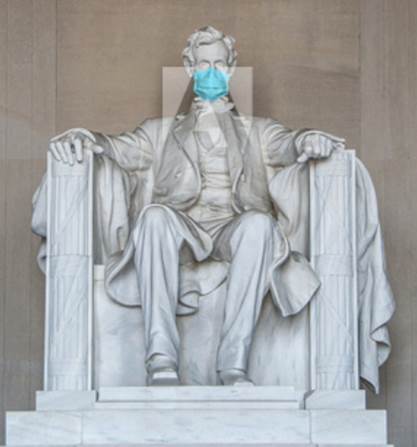
Meanwhile the logistics of fighting the coronavirus has opened up the cracks in America’s federal emergency response bureaucracy. FEMA, the agency responsible for natural disasters like forest fires, floods and Hurricane Katrina, is being asked to manage a massive national supply chain of personal protective equipment, and distribute masks, gowns, gloves, ventilators and drugs across the country.
But in attempting to meet the demand for PPE and other urgent medical equipment, FEMA has contributed to frustration among governors, who are struggling to have enough equipment for hospitals and front-line care workers. The Hill reports, Trump has repeatedly urged states to procure their own equipment and use the federal government as a backup, but governors have in recent days complained that FEMA has swooped in to buy up many of the needed supplies.
There is also confusion about who is in charge. Is it FEMA? Homeland Security? The Pentagon? The White House? The eminently unqualified President’s son-in-law Jared Kushner?
FEMA’s administrator, Pete Gaynor, has largely disappeared from public view, seemingly replaced by Kushner. Kushner, married to Trump’s daughter Ivanka, has reportedly made several appearances at the National Response Coordination Center, the nerve center of FEMA’s response efforts located in FEMA headquarters — and unleashed a team of officials to embed with FEMA and HHS officials.
On one occasion, Kushner circumvented FEMA’s national coordination process, meant to ensure that all states’ requests for supplies are handled fairly:
At a White House briefing, Kushner touted an example of how the administration is working on supply chains, explaining how he procured N95 masks for New York’s public hospital system after the President heard about a shortage from “friends.”
New York officials including Gov. Andrew Cuomo and New York City Mayor Bill De Blasio have been warning against critical mask shortages for weeks.
Worse, Kushner demonstrated his complete lack of understanding and appropriate background for the role of Medical Supply Czar (as he did in his handling of the US opiate crisis and his Middle East peace plan). When asked about complaints by states that they weren’t getting needed supplies from the strategic national stockpile, he said, “The notion of the federal stockpile is that it’s supposed to be our stockpile. It’s not supposed to be states’ stockpiles that they then use.”
In fact, that is precisely what the stockpile is for, according to the Strategic National Stockpile website:
“Strategic National Stockpile is the nation’s largest supply of life-saving pharmaceuticals and medical supplies for use in a public health emergency severe enough to cause local supplies to run out. When state, local, tribal, and territorial responders request federal assistance to support their response efforts, the stockpile ensures that the right medicines and supplies get to those who need them most during an emergency.”
Unless Trump gets booted from the White House in November there is little doubt that Kushner and his wife will continue to insinuate themselves into government roles that are neither appropriate nor useful.
Consider a couple other portfolios he’s been asked to take on, and also failed at, including strengthening the US relationship with Mexico (makes me laugh), and criminal justice reform.
It also needs to be emphasized that Kushner’s reputation as a property developer is shady to say the least. In a recent Netflix documentary entitled ‘Slumlord Millionaire,’ Kushner is described as a “tier-one predator” who “quickly began managing the family business via underhanded practices of a despicable sort,” according to a Daily Beast preview of the show.
His methods include regularly ousting residents from rent-stabilized apartments in New York by “construction harassment,” the idea being to make renters’ lives so unpleasant that they flee their homes. Through such “renovictions” his company is able to increase rents without running afoul of the city’s regulations.
In Maryland, residents accused the company of forcing them to pay sham penalty fees, in order to raise revenues needed to pay for a real estate deal gone wrong – the disastrous 2007 purchase by Kushner Companies for a record $1.8 billion.
Conclusion
Leaders of nations need to have strong personality traits that may be called upon in the event of national emergencies such as war, insurrection, natural disasters and health crises.
The ability to handle a pandemic was likely not even considered by voters who marked an X beside Donald Trump in 2016. What many wanted was a President who could stand up America’s adversaries, like Russia, China and ISIS, cut government red tape, “drain the swamp” in Washington and bring back jobs lost to outsourcing and technology.
The fact that Trump was an “imperfect vessel”, in the words of Steve Bannon, mattered little to Trump supporters and the many Americans who voted for a wholly different kind of change than Obama promised back in 2008.
What we are now seeing in the Trump administration’s response to the coronavirus, and let’s not kid ourselves into thinking this isn’t being led by the man at the top, is all of Trump’s personality faults, accentuated: the narcissism, the lack of empathy, the need to be right, even among overwhelming evidence to the contrary, to make decisions on “gut feel” rather than facts.
“WE CANNOT LET THE CURE BE WORSE THAN THE PROBLEM ITSELF,” he tweeted in reference to shutting down the economy to prevent hundreds of thousands more hospitalizations and deaths. For Trump and his inner circle, while death isn’t ideal, it’s better than allowing the US economy to stall. The lack of adherence to social distancing measures across large swaths of the US population would indicate many agree.
But we shouldn’t allow ourselves to focus too much on one individual. For while it’s tempting to dismiss Trump’s failure to act in the face of so much evidence demanding a more immediate response, as the ravings of a sociopath, compared to what China did, there is no moral equivalency.
Shadid Hamid, senior fellow at the Brookings Institutes, contributes to The Atlantic the following quote:
Trump didn’t block the media from reporting on the coronavirus; he did not disappear his critics. The nature of a regime matters. And this is why I, for one, am glad to live in a democracy, however flawed, in this time of unprecedented crisis.
After the crisis, whenever after is, the relationship with China cannot and should not go back to normal. Nothing, in any case, will go back to normal after the sheer scale of destruction becomes clear. Of course, the rest of the world will have to live with the Chinese leadership as long as it remains in power. But this pandemic should, finally, disabuse us of any remaining hope that the Chinese regime could be a responsible global actor. It is not, and it will not become one.
Whatever the motivations for Trump’s actions during the coronavirus pandemic – the naked pursuit of re-election, the need to be popular, to wield control over governors – there is no getting around the fact that he will be judged by the electorate. US Presidents only have two terms to make their mark; in China, President Xi Jinping has eliminated limits on presidential terms. Like Russia’s Putin, China’s Xi is effectively leader for life.
In China, unlike the US, the need for social control knows no limits. The regime in power during the Tiananmen Square massacre preferred the deaths of thousands of protesters than to open up the country to another revolution. Same with Hong Kong, currently. And same with coronavirus. Even when faced with the risk of millions of Chinese infecting the world with covid-19, the Chinese leadership chose to hide the rapidly worsening epidemic. Given the choice of admitting they had a huge problem, they instead suppressed information, including to the body supposed to be in front of these things, the World Health Organization, cracked down on whistleblowers, “disappeared” dissenters.
They had a blueprint in SARS, yet they appear to have learned very little.
The result is a pandemic that has infected over 1.5 million, and killed almost 100,000.
Who knows what the final death toll will be, we’re still in the middle of it. Yet amid so much sickness and death, we can see the world has changed, and not for the better. China could have reached out to the rest of the world for help, instead they chose to wall off, but not before allowing millions of infected travelers to spread coronavirus far and wide.
The Trump administration could have chosen to protect its citizens, early on. Instead it waited, and then when problems arrived, lied, denied and blamed.
Even a decent testing regime could have identified thousands of asymptomatic people in the early days of the pandemic, lessening hospitalizations.
Many are wondering what the new normal will look like, post-covid-19. The US and China have showed that globalism is dead. Those who trusted China before are unlikely to trust them again. They have proven they are in it for themselves.
And those who trusted Trump to handle a crisis of practically Biblical proportions will soon have a chance to cast judgment.
Richard (Rick) Mills
subscribe to my free newsletter
aheadoftheherd.com
Ahead of the Herd Twitter
Legal Notice / Disclaimer
Ahead of the Herd newsletter, aheadoftheherd.com, hereafter known as AOTH.
Please read the entire Disclaimer carefully before you use this website or read the newsletter. If you do not agree to all the AOTH/Richard Mills Disclaimer, do not access/read this website/newsletter/article, or any of its pages. By reading/using this AOTH/Richard Mills website/newsletter/article, and whether or not you actually read this Disclaimer, you are deemed to have accepted it.
Any AOTH/Richard Mills document is not, and should not be, construed as an offer to sell or the solicitation of an offer to purchase or subscribe for any investment.
AOTH/Richard Mills has based this document on information obtained from sources he believes to be reliable but which has not been independently verified. AOTH/Richard Mills makes no guarantee, representation or warranty and accepts no responsibility or liability as to its accuracy or completeness. Expressions of opinion are those of AOTH/Richard Mills only and are subject to change without notice. AOTH/Richard Mills assumes no warranty, liability or guarantee for the current relevance, correctness or completeness of any information provided within this Report and will not be held liable for the consequence of reliance upon any opinion or statement contained herein or any omission. Furthermore, AOTH/Richard Mills assumes no liability for any direct or indirect loss or damage or, in particular, for lost profit, which you may incur as a result of the use and existence of the information provided within this AOTH/Richard Mills Report.
AOTH/Richard Mills is not a registered broker/financial advisor and does not hold any licenses. These are solely personal thoughts and opinions about finance and/or investments – no information posted on this site is to be considered investment advice or a recommendation to do anything involving finance or money aside from performing your own due diligence and consulting with your personal registered broker/financial advisor. You agree that by reading AOTH/Richard Mills articles, you are acting at your OWN RISK. In no event should AOTH/Richard Mills liable for any direct or indirect trading losses caused by any information contained in AOTH/Richard Mills articles. Information in AOTH/Richard Mills articles is not an offer to sell or a solicitation of an offer to buy any security. AOTH/Richard Mills is not suggesting the transacting of any financial instruments but does suggest consulting your own registered broker/financial advisor with regards to any such transactions
Legal Notice / Disclaimer
Ahead of the Herd newsletter, aheadoftheherd.com, hereafter known as AOTH.Please read the entire Disclaimer carefully before you use this website or read the newsletter. If you do not agree to all the AOTH/Richard Mills Disclaimer, do not access/read this website/newsletter/article, or any of its pages. By reading/using this AOTH/Richard Mills website/newsletter/article, and whether you actually read this Disclaimer, you are deemed to have accepted it.

